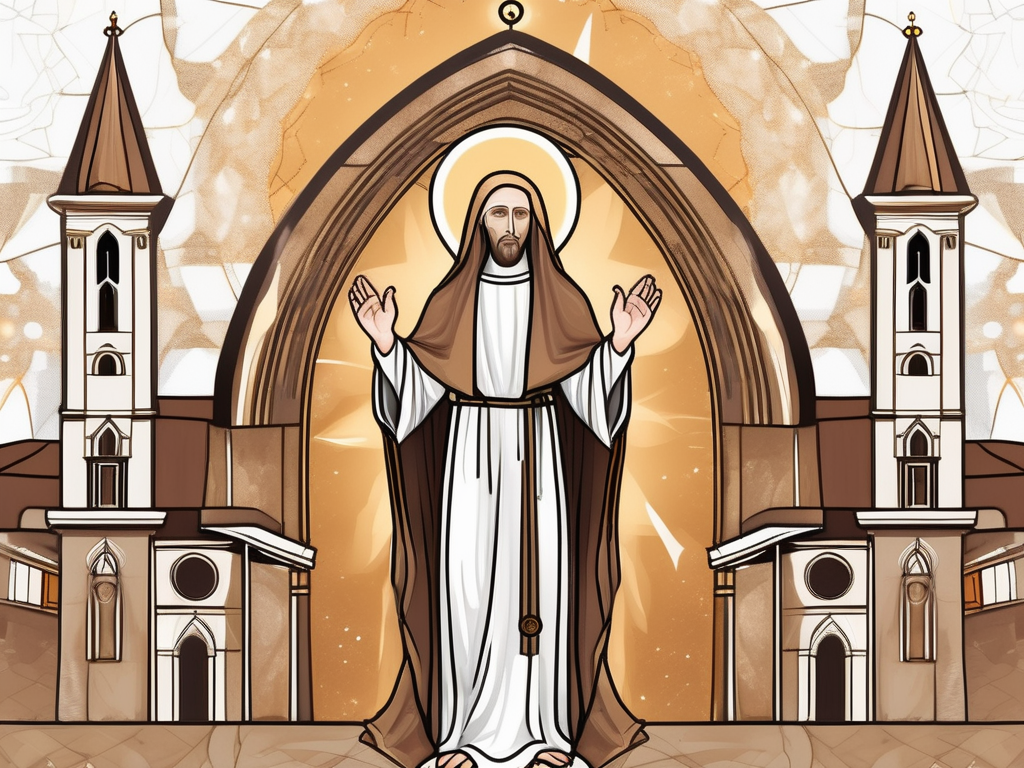Peter the Apostle, also known as Simon Peter, was one of the most prominent figures in Christianity. His life and teachings continue to inspire millions around the world. Let’s delve into the various aspects of his life to understand his significant role in shaping the early church and his lasting impact on the faith.
Early Life of Peter the Apostle
Before Peter became a disciple of Jesus, he had a humble background. Born into a Jewish family, he grew up in a small fishing village called Bethsaida. As a child, he was exposed to the rich traditions and customs of his community.
Family and childhood played a crucial role in shaping Peter’s character and spirituality. He learned the importance of faith and devotion from his parents, who were devout Jews. This upbringing laid the groundwork for his future encounter with Jesus.
It was during his early years that Peter developed a deep curiosity and desire to understand the spiritual world. He longed for a personal connection with God and sought for meaning beyond the ordinary life of a fisherman.
Living in a fishing village, Peter witnessed the ebb and flow of the sea, its vastness and unpredictability. He saw how the fishermen relied on their skills and knowledge to navigate the waters and provide for their families. These experiences instilled in him a sense of resilience and determination, qualities that would later serve him well in his journey as a disciple.
As Peter grew older, he became known for his strong work ethic and dedication to his craft. He honed his fishing skills, spending countless hours on the boat, casting nets, and hauling in the day’s catch. This physical labor not only provided for his livelihood but also taught him the value of perseverance and patience.
Introduction to Faith
Peter’s journey to faith started when he first encountered Jesus. This life-changing encounter transformed his perspective and set him on a path of discipleship. It is said that Peter, along with his brother Andrew, was called by Jesus to follow him and become fishers of men.
Imagine the scene: Peter and Andrew, exhausted from a long night of fishing, were washing their nets by the shore. Jesus, sensing their weariness and longing for something more, approached them. He spoke with authority and compassion, inviting them to leave their nets behind and embark on a new adventure.
As Peter spent more time with Jesus, he witnessed numerous miracles and teachings that left an indelible mark on his life. He saw Jesus heal the sick, give sight to the blind, and even raise the dead. These extraordinary acts of compassion and power stirred something deep within Peter’s soul.
He experienced firsthand the incredible power and authority that Jesus possessed. Whether it was calming a stormy sea or feeding thousands with just a few loaves and fish, Jesus demonstrated that he was more than just a teacher or prophet. He was the long-awaited Messiah, the Son of God.
However, Peter’s faith was not without its challenges. He faced moments of doubt and even faltered in his commitment to Jesus. One notable incident was when he denied knowing Jesus three times before the crucifixion. The weight of fear and uncertainty caused him to waver, but it also revealed his humanity.
But despite his shortcomings, Peter’s faith was ultimately restored. After Jesus’ resurrection, he appeared to Peter and the other disciples, reaffirming their mission and commissioning them to spread the good news. Peter, filled with a renewed sense of purpose, emerged as a prominent leader in the early church, fearlessly proclaiming the message of Jesus to all who would listen.
Throughout his life, Peter’s experiences, both in his upbringing and his time with Jesus, shaped him into a resilient and passionate disciple. His journey serves as a reminder that faith is not always a straight path but one filled with twists and turns. And in the end, it is through these challenges and moments of doubt that our faith can be strengthened and our purpose clarified.
Peter’s Role in the Ministry of Jesus
Peter played a significant role in the ministry of Jesus. He was not just a disciple but was also considered one of Jesus’ closest confidants and friends. This closeness allowed Peter to witness remarkable events and miracles performed by Jesus.
As Peter walked alongside Jesus, he experienced a profound transformation. He witnessed the compassion and love that radiated from Jesus, inspiring him to leave behind his familiar life as a fisherman and embark on a mission to spread the teachings of Jesus.
Peter’s interactions with Jesus were filled with profound lessons and life-changing experiences. He witnessed Jesus’ ministry first-hand, including healing the sick, feeding thousands with a few loaves of bread and fish, and even raising the dead. These extraordinary events solidified Peter’s unwavering faith in Jesus.
One of the most significant moments in Peter’s journey was his call to discipleship. It was a pivotal turning point that marked the beginning of his transformative journey. As Jesus called out to Peter, he felt a stirring in his heart, a call to something greater. Leaving behind his fishing nets, Peter stepped into a new chapter of his life, ready to follow Jesus wherever he led.
Peter’s Call to Discipleship
The call to discipleship marked the beginning of Peter’s transformative journey. It was through this call that Peter’s life took a new direction. He left behind his fishing nets and embarked on a mission to spread the teachings of Jesus.
As Peter walked alongside Jesus, he witnessed the power and authority with which Jesus spoke. He saw lives being transformed, hearts being healed, and hope being restored. Peter was captivated by Jesus’ teachings and the way he lived out his faith with unwavering conviction.
Peter’s interactions with Jesus were filled with profound lessons and life-changing experiences. He witnessed Jesus’ ministry first-hand, including healing the sick, feeding thousands with a few loaves of bread and fish, and even raising the dead. These extraordinary events solidified Peter’s unwavering faith in Jesus.
Jesus saw something special in Peter, a potential for leadership and a deep love for God. He knew that Peter would play a crucial role in spreading the message of God’s love and salvation to the world. With this knowledge, Jesus called Peter to be one of his closest disciples, entrusting him with the responsibility of carrying on his mission.
Significant Events and Miracles
Throughout Jesus’ ministry, Peter was present during many pivotal moments. He was one of the few chosen disciples who witnessed the transfiguration of Jesus, where he saw Jesus being transformed into divine glory. It was an awe-inspiring sight that left Peter in awe of the power and majesty of Jesus.
Peter’s courageous act of walking on water, even if only for a brief moment, showcases his faith and trust in Jesus. This incident symbolizes the importance of unwavering faith, even in the face of daunting challenges. As Peter stepped out of the boat and onto the water, he experienced a profound connection with Jesus, defying the laws of nature and reminding us all of the limitless possibilities that exist when we place our trust in God.
Another remarkable event in which Peter played a prominent role was the miraculous catch of fish. Jesus instructed Peter to cast his nets into deep waters, and despite initial doubt, Peter obeyed. The result was an overflowing catch that left Peter humbled and in awe of Jesus’ power. It was a powerful reminder that when we trust in Jesus and follow his guidance, our efforts are multiplied beyond measure.
Peter’s journey with Jesus was filled with moments of awe, wonder, and profound spiritual growth. He witnessed the transformative power of Jesus’ love and saw firsthand the impact it had on the lives of those around him. Peter’s role in the ministry of Jesus was not just that of a disciple, but a trusted friend and confidant who played a vital part in spreading the message of God’s kingdom.
Peter as a Leader of the Early Church
After the resurrection and ascension of Jesus, Peter emerged as a prominent leader in the early church. The influence of his teachings and his role in shaping the early Christian community cannot be overstated.
Peter’s Role in the Jerusalem Council
One significant event that highlights Peter’s leadership in the early church was the Jerusalem Council. This council addressed the issue of whether non-Jewish believers needed to follow Jewish customs and adhere to the Law of Moses. Peter played a pivotal role in advocating for the inclusion of Gentile believers and the acceptance of their faith as equal.
Peter’s experience with the conversion of Cornelius, a Roman centurion, played a crucial role in his stance at the Jerusalem Council. He realized that God’s grace extended beyond the boundaries of Judaism and embraced the idea of a universal faith that transcended cultural distinctions.
His Contributions to the New Testament
Another aspect of Peter’s leadership was his contribution to the New Testament. He is traditionally believed to be the author of two epistles, 1 Peter and 2 Peter, which offer guidance and encouragement to early Christian communities.
These letters reflect Peter’s deep understanding of the challenges faced by the early believers and his desire to strengthen their faith. His writings emphasize the importance of hope, perseverance, and a steadfast commitment to Christian values in the face of adversity.
The Martyrdom of Peter
Despite his significant contributions to the early church, Peter’s life ended tragically. He faced persecution, ultimately leading to his martyrdom. The circumstances surrounding his death exemplify his unwavering commitment to his faith.
Circumstances Leading to His Death
Peter’s martyrdom was a result of his refusal to renounce his faith. During Emperor Nero’s reign, Christians were subjected to violent persecution. Peter, being a prominent figure in the faith, became a target of the Roman authorities.
Legend has it that Peter was crucified upside down, as he believed he was not worthy to die in the same manner as Jesus. This act of humility and sacrifice made a lasting impact on the early Christian community, strengthening their resolve to uphold their beliefs regardless of the consequences.
Impact and Symbolism of His Crucifixion
Peter’s crucifixion has become a symbol of sacrifice, loyalty, and unwavering faith in Christianity. It serves as a reminder for believers to remain steadfast in their commitment to Christ, even in the face of adversity.
His death also ignited a sense of urgency and commitment among the early Christians to preserve and spread the teachings of Jesus. Peter’s martyrdom became a defining moment in the history of Christianity, solidifying his legacy as a faithful disciple and inspiring generations to come.
Peter’s Legacy in Christianity
Peter’s impact on Christianity extends beyond his role as a disciple and leader. His teachings and life serve as a foundation for Christian doctrine and continue to shape the faith to this day.
Influence on Christian Doctrine
Peter’s teachings, both through his actions and writings, have significantly influenced Christian doctrine. His emphasis on faith, love, and hope serves as a guide for believers worldwide. His teachings reveal the compassion and inclusivity that lie at the heart of Christianity.
Furthermore, Peter’s recognition of Jesus as the Son of God and his unwavering commitment to spreading the gospel paved the way for the establishment of the Christian church. His devotion continues to inspire believers to live out their faith in meaningful and impactful ways.
Peter in Art and Literature
Peter’s life has also been depicted in various forms of art and literature. From ancient paintings and sculptures to modern-day novels and films, his story has captured the imagination of countless artists and writers throughout history.
Artworks portraying Peter often depict him holding the keys to the kingdom, symbolizing his position as the rock upon which the Christian church was built. These artistic representations not only celebrate his role as a leader but also serve as a reminder of his enduring legacy.
In literature, Peter’s story has been told and retold in different contexts, exploring the depths of his character and the impact of his faith. These portrayals continue to inspire readers by showcasing the transformative power of faith, redemption, and forgiveness.
In Conclusion
The life and legacy of Peter the Apostle remain a testament to the transformative power of faith and commitment. From his humble beginnings as a fisherman to becoming a key figure in the early church, Peter’s journey exemplifies the profound influence that dedication and unwavering belief can have.
His teachings, martyrdom, and lasting impact in Christianity continue to inspire and guide believers around the world. Peter’s story reminds us of the potential within each of us to make a lasting difference in the world through faith, love, and the pursuit of a meaningful life.












